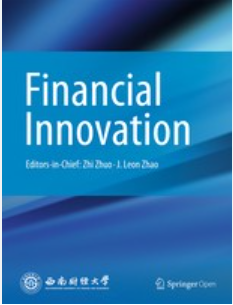模拟环境、社会和治理信息披露与得分之间的联系:伊斯坦布尔证券交易所可持续发展指数中的上市公司案例
IF 7.2
1区 经济学
Q1 BUSINESS, FINANCE
引用次数: 0
摘要
本研究构建了一个拟议模型,以研究伊斯坦布尔证券交易所可持续发展指数(XUSRD)中上市公司的环境、社会和治理(ESG)披露与 ESG 分数之间的联系。在此背景下,本研究考虑了 66 家公司,对首次发布的 2022 家公司最近结构化的 ESG 披露作为新数据进行了检查,并应用了多层感知器 (MLP) 人工神经网络算法。相关结果有四个方面。(1)MLP 算法在估算公司 ESG 分数方面的解释力(即 R2)为 79%。(2)共同、环境、社会和治理支柱在 ESG 总分中的权重分别为 21.04%、44.87%、30.34% 和 3.74%。(3) 各ESG报告原则对公司ESG得分的绝对和相对重要性各不相同。(4) 从绝对和相对重要性来看,最有效的 ESG 原则是共同原则,其次是社会和环境原则,而治理原则的重要性较低。总之,研究结果表明,采用线性方法来完成ESG披露的不足之处,对于提高公司的ESG得分效率不高;相反,公司应关注相对重要性最高的ESG原则。本研究的结果界定了对刺激 XUSRD 指数中公司的 ESG 分数最重要的 ESG 原则,从而为相关文献做出了贡献。本文章由计算机程序翻译,如有差异,请以英文原文为准。
Modeling the link between environmental, social, and governance disclosures and scores: the case of publicly traded companies in the Borsa Istanbul Sustainability Index
This study constructs a proposed model to investigate the link between environmental, social, and governance (ESG) disclosures and ESG scores for publicly traded companies in the Borsa Istanbul Sustainability (XUSRD) index. In this context, this study considers 66 companies, examining recently structured ESG disclosures for 2022 that were published for the first time as novel data and applying a multilayer perceptron (MLP) artificial neural network algorithm. The relevant results are fourfold. (1) The MLP algorithm has explanatory power (i.e., R2) of 79% in estimating companies’ ESG scores. (2) Common, environment, social, and governance pillars have respective weights of 21.04%, 44.87%, 30.34%, and 3.74% in total ESG scores. (3) The absolute and relative significance of each ESG reporting principle for companies’ ESG scores varies. (4) According to absolute and relative significance, the most effective ESG principle is the common principle, followed by social and environmental principles, whereas governance principles have less significance. Overall, the results demonstrate that applying a linear approach to complete deficient ESG disclosures is inefficient for increasing companies’ ESG scores; instead, companies should focus on the ESG principles that have the highest relative significance. The findings of this study contribute to the literature by defining the most significant ESG principles for stimulating the ESG scores of companies in the XUSRD index.
求助全文
通过发布文献求助,成功后即可免费获取论文全文。
去求助
来源期刊

Financial Innovation
Economics, Econometrics and Finance-Finance
CiteScore
11.40
自引率
11.90%
发文量
95
审稿时长
5 weeks
期刊介绍:
Financial Innovation (FIN), a Springer OA journal sponsored by Southwestern University of Finance and Economics, serves as a global academic platform for sharing research findings in all aspects of financial innovation during the electronic business era. It facilitates interactions among researchers, policymakers, and practitioners, focusing on new financial instruments, technologies, markets, and institutions. Emphasizing emerging financial products enabled by disruptive technologies, FIN publishes high-quality academic and practical papers. The journal is peer-reviewed, indexed in SSCI, Scopus, Google Scholar, CNKI, CQVIP, and more.
 求助内容:
求助内容: 应助结果提醒方式:
应助结果提醒方式:


